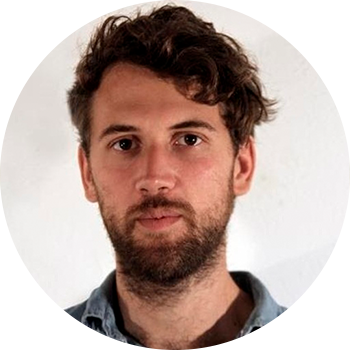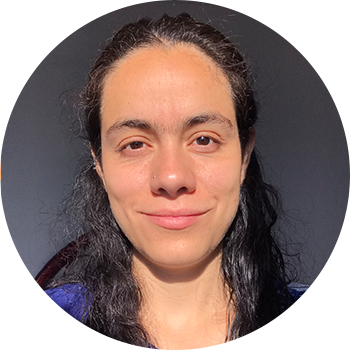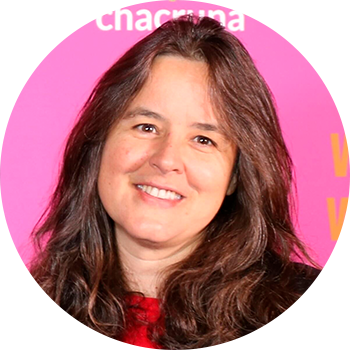
Mar
8
8:00pm
Sacred Mushrooms and Psychedelic Capitalism
By Chacruna Institute
Wednesday, March 8th, 2023 from 12:00-1:30pm PST
This event is a partnership between Chacruna and The Center for Psychedelic Studies at Naropa University.

Shamanic practices in the Mazatec region of Southern Mexico first inspired the use of psilocybin in the Global North, which went on to shape the psychedelic era itself. The encounter which infamously propelled this development, between María Sabina, a gifted Mazatec sabía (wise woman), and Gordon Wasson, a U.S. banker and ethnomycologist, also resulted in an influx of yippies, researchers, and later psychedelic tourists, to the Mazatec town of Huautla de Jiménez. Mazatec culture has deeply informed global practices with psilocybin, but how has the so-called psychedelic renaissance, entangled with the global dominance of capitalism and Western-centric colonialism, in turn affected people in the Mazatec region? What is the impact of contemporary clinical research and patenting of psilocybin, and the emerging industry around it, on Mazatec people, communities, and practices? What parallels exist between contemporary Mazatec conceptions of and relationships with sacred mushrooms and the biomedical application of psilocybin in mental healthcare? How can we explain the continuities and differences between fundamental assumptions concerning what constitutes psilocybin mushrooms, illness, and healing? Are there potential ways to mitigate the current inequalities and be in right relationship with Mazatec communities? In this community forum led by Dr. Bia Labate, anthropologists Citlali Rodríguez Venegas and Nicholas Spiers will discuss their research in the Mazatec region and the role of anthropology in transforming thought and guiding ethical practice in the psychedelic arena.

Nicholas Spiers is an anthropologist and documentary filmmaker. He has a Master’s degree in visual anthropology from the University of Barcelona. He has lived for several years in Mexico doing fieldwork in the Sierra Mazateca, and is currently based in Portugal. He is Chacruna’s research coordinator, creating content incorporating different cultural perspectives and disciplines to approach challenging discussions in the psychedelic community. He is the lead author on Chacruna’s upcoming Annotated Bibliography of Key Texts on the Indigenous and Historical Uses of Psilocybin. He also produces compelling videos and multimedia materials. With Bia Labate he co-directed the documentary web series The Peyote Files, and created the educational video Chacruna Debunks 6 Racist Myths from the Psychedelic Community. He has created an award-winning series about the psychoactive plant Salvia divinorum.

Citlali Rodrigues has dedicated her studies to Mazatec’s culture, ontology, sacred mushrooms, and contemporary history, especially in the indigenous city of Huautla de Jiménez (Oaxaca); master’s and Ph.D. in Mesoamerican Studies (National Autonomous University of Mexico). She has experience in collaboration projects in the Mazatec highlands, as a founding member of Memoria Mazateca, dedicated to Mazatec history, culture, and language, and as a member of the Mazatec Painters Collective at Casa Adobe Art Galley (Huautla de Jiménez). She is the author of the book Mazatecos, niños santos y güeros en Huautla de Jiménez, Oaxaca (2017).

Dr. Beatriz Caiuby Labate (Bia Labate) is a queer Brazilian anthropologist based in San Francisco. She has a Ph.D. in social anthropology from the University of Campinas (UNICAMP), Brazil. Her main areas of interest are the study of plant medicines, drug policy, shamanism, ritual, religion, and social justice. She is Executive Director of the Chacruna Institute for Psychedelic Plant Medicines and serves as Public Education and Culture Specialist at the Multidisciplinary Association for Psychedelic Studies (MAPS). She is also Visiting Scholar at Naropa University’s Center for Psychedelic Studies and Advisor at the Veteran Mental Health Leadership Coalition. Dr. Labate is a co-founder of the Interdisciplinary Group for Psychoactive Studies (NEIP) in Brazil and editor of its site. She is author, co-author, and co-editor of twenty-six books, two special-edition journals, and several peer-reviewed articles (https://bialabate.net).
hosted by
Chacruna Institute
share